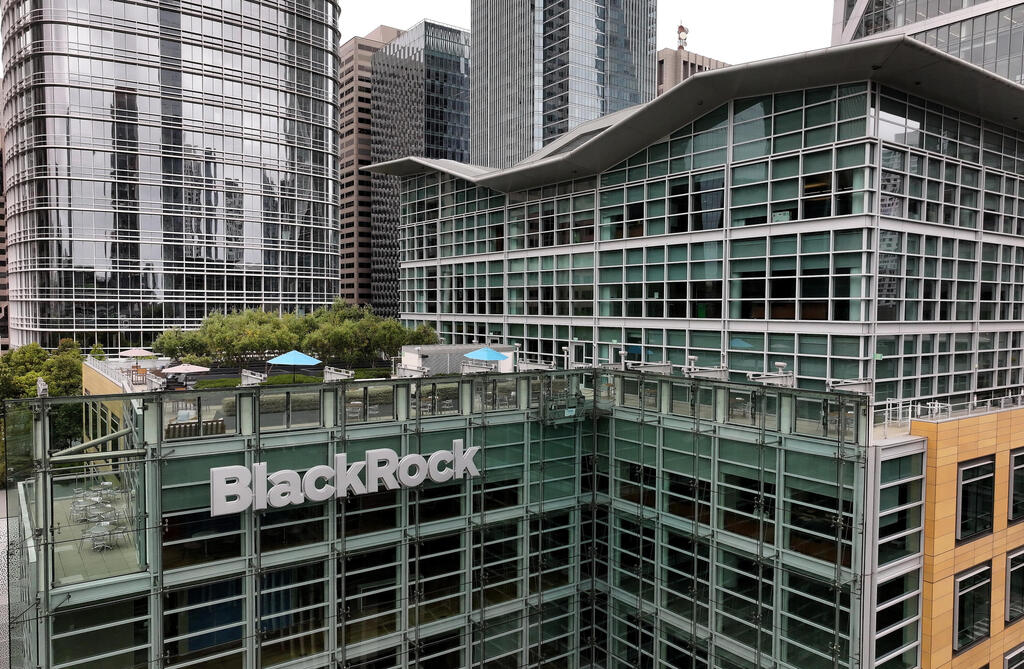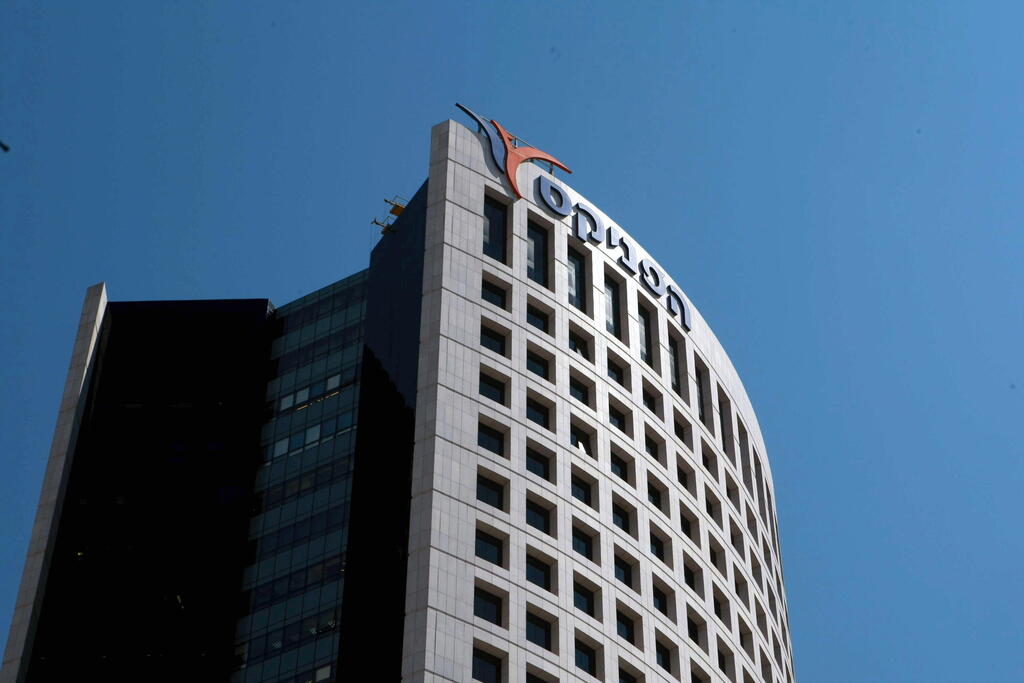The outflow comes amid a rally on the Tel Aviv Stock Exchange, which has outperformed major Western markets this year, coupled with underwhelming short-term returns and relatively high management fees on the Phoenix-BlackRock products.
2 View gallery

In an aerial view, the BlackRock logo is displayed on the exterior of a BlackRock office on July 15, 2024 in San Francisco, California
(Photo: JUSTIN SULLIVAN / GETTY IMAGES NORTH AMERICA / Getty Images via AFP)
The partnership began in early 2022, when The Phoenix—Israel’s largest institutional investor, with 529 billion shekels in assets under management and a market cap of 28.3 billion shekels—launched a joint offering with BlackRock, the world’s largest asset manager with roughly $12 trillion under management.
The collaboration allows Israeli investors to access BlackRock-managed portfolios through Phoenix Invest, a savings policy platform that offers flexibility in switching between investment tracks. Two tracks are offered under the BlackRock management: a general track and an equity track, both unhedged against currency risk and fully exposed to dollar-shekel fluctuations.
When the shekel strengthens, shekel-based returns decline—posing an additional risk for local investors. These products also carry above-average fees. According to Israel’s Capital Market Authority, The Phoenix charges 1.36% annually on the general track and 1.35% on the equity track, compared to a sector average of 1.05%. Competing investment vehicles, such as investment provident funds, charge around 0.7% on average.
Despite the fees, the BlackRock partnership offered cost advantages over direct bank purchases of similar products, thanks to The Phoenix’s scale and integration with BlackRock.
A marketing push and distribution through insurance agents propelled the product to 3.5 billion shekels in assets under management by November 2024. However, by mid-2025, that number had fallen by 930 million shekels. Assets in the general track dropped from 2.6 billion shekels to 1.8 billion shekels, and the equity track shrank from 930 million shekels to 800 million shekels.
Much of the money was redirected into other Phoenix Invest tracks, particularly the company’s in-house general track and another with higher exposure to Israeli assets.
Over the 12 months ending in June 2025, the BlackRock-managed general track posted a shekel return of just 1.06%, underperforming its benchmark, which returned about 2%. After accounting for fees, the track delivered a negative return of 0.3%.
The equity track returned 4.4% in shekel terms—or 3% after fees—slightly beating an S&P 500-tracking fund, which returned 3.6%. However, the equity benchmark also includes the MSCI World Index excluding the United States, which posted a 5% return over the same period.
In contrast, the TA-125 index, Israel’s main benchmark, surged 54.7% over the past year, as local risk premiums declined following several years of underperformance compared to U.S. markets.
Since the Phoenix-BlackRock product launched in 2022, longer-term performance has been stronger. The general track has returned 32% in shekel terms, and the equity track 48.5%, both significantly ahead of their respective benchmarks, which returned 20.7% and 25.8%.
Much of the product’s initial growth was fueled by The Phoenix’s insurance agent network. Agents can receive up to 40% of first-year management fees, along with a one-time commission of up to 10,000 shekels per client transfer. Insurance companies are willing to pay these sums because clients tend to stay longer, as switching providers usually triggers capital gains tax—a barrier not present in other investment vehicles such as investment provident funds.
The Phoenix says the Invest platform was designed to offer flexibility within the company’s ecosystem, allowing savers to switch tracks without creating a taxable event. The current move toward Israeli exposure is seen by the company as a natural correction following the 2023 preference for global investments.
The firm’s success has spurred competition. In September 2024, Harel Insurance launched a similar savings policy partnership with U.S. financial giant Fidelity. In November, Clal Insurance followed with a product managed by State Street. However, both offerings have struggled to gain traction. Fidelity’s assets under management stand at about 200 million shekels, while State Street’s are just 30 million shekels.
Both partnerships also feature higher management fees, starting at 1.5% of assets, above those charged in the Phoenix-BlackRock tracks.
Savings policies remain a central investment tool in Israel for short- and medium-term savings. According to the Capital Market Authority, they managed 86 billion shekels at the end of 2024 and now manage approximately 100 billion shekels following the 2025 market rally.
These products have both advantages and drawbacks compared to alternatives such as investment provident funds and mutual funds. Downsides include lower transparency and higher fees, along with limited portability due to the tax implications of switching providers. On the plus side, they offer high liquidity and no limits on annual contributions—unlike provident funds, which cap annual deposits at 74,000 shekels.
A parliamentary arbitrage conference has recently proposed eliminating the regulatory discrepancies between savings policies, provident funds and mutual funds.












